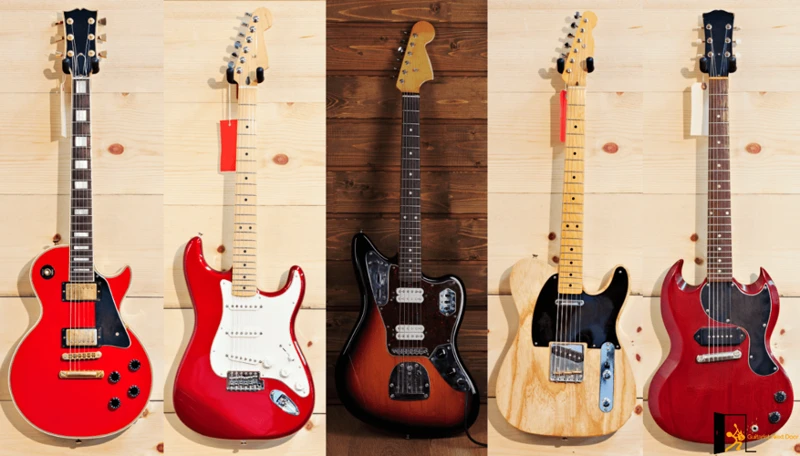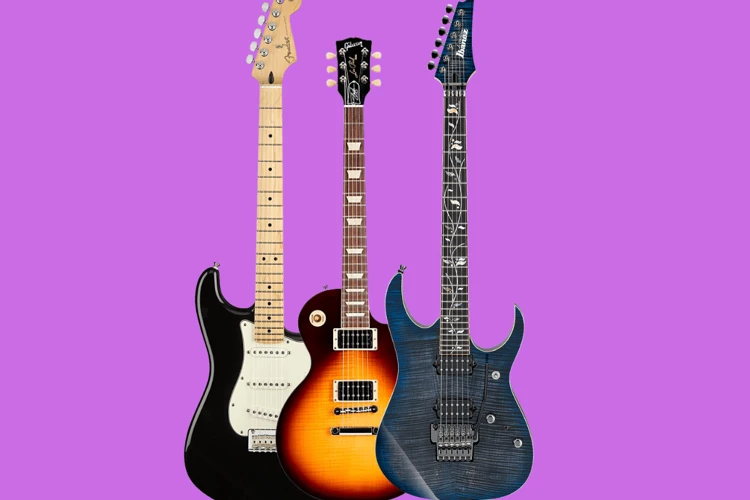Country music has a rich history filled with diverse subgenres that have evolved over time. From traditional honky-tonk to modern pop-infused country, the genre continues to reinvent itself while staying true to its roots. One essential element that has played a significant role in shaping these subgenres is the electric guitar. With its twangy tones, versatility, and ability to evoke emotion, the electric guitar has become a staple in country music, influencing the sound and style of various subgenres. In this article, we will explore how electric guitars have shaped country subgenres and contributed to the genre’s evolution over the years.
The Birth of Electric Guitars in Country Music
The introduction of electric guitars in country music marked a significant turning point in the genre’s history. Prior to the electric guitar’s rise to prominence, country music was primarily associated with acoustic instruments like the banjo, fiddle, and acoustic guitar. However, in the 1930s and 1940s, musicians began experimenting with electrified instruments, leading to the emergence of a new sound that would eventually become known as electric country.
One of the pioneers of electric country music was the legendary musician, Bob Wills. Wills, along with his band, The Texas Playboys, popularized a style of music known as Western swing, which blended elements of country, jazz, and blues. At the heart of Western swing was the electric guitar, which added a new level of energy and excitement to the genre. With its amplified sound and ability to cut through the mix, the electric guitar became a driving force in shaping the sound of Western swing and influencing future country subgenres.
Electric Guitars in Honky-Tonk and Outlaw Country
As country music continued to evolve, the electric guitar played a crucial role in the development of subgenres like honky-tonk and outlaw country. Honky-tonk, characterized by its raw, stripped-down sound and emotionally honest lyrics, became a popular subgenre in the 1950s and 1960s. Artists like Hank Williams and Lefty Frizzell embraced the electric guitar as a means of expressing the raw emotion and heartache central to honky-tonk music.
In the 1970s, outlaw country emerged as a rebellious response to the polished, pop-oriented sound dominating mainstream country music. Outlaw country artists like Willie Nelson, Waylon Jennings, and Merle Haggard embraced the electric guitar as a symbol of their defiance against the Nashville establishment. With its gritty tone and rebellious spirit, the electric guitar became synonymous with the outlaw country movement, shaping the subgenre’s sound and ethos.
The Evolution of Rockabilly and Country Rock
Rockabilly, a fusion of rock ‘n’ roll and country music, became a popular subgenre in the 1950s, thanks in part to the electric guitar. Artists like Elvis Presley, Carl Perkins, and Johnny Cash blended the twangy sound of country with the driving rhythms of rock ‘n’ roll, creating a new musical style that captivated audiences around the world. The electric guitar played a central role in rockabilly music, with its sharp, percussive sound driving the genre’s infectious melodies and energetic performances.
In the 1970s, country rock emerged as a hybrid genre that combined the rootsy sound of country music with the electrifying energy of rock music. Bands like The Eagles, Creedence Clearwater Revival, and The Byrds embraced the electric guitar as a means of bridging the gap between country and rock, creating a sound that appealed to a wide range of listeners. The electric guitar’s versatility and dynamic range were essential in shaping the evolving sound of country rock, influencing future generations of musicians and paving the way for modern country subgenres.
The Influence of Modern Country and Pop-Country
In recent years, modern country music has seen a resurgence in popularity, with artists blending traditional country sounds with contemporary influences. The electric guitar continues to play a vital role in shaping the sound of modern country music, adding depth, texture, and emotion to songs that resonate with audiences worldwide. Artists like Keith Urban, Brad Paisley, and Miranda Lambert have embraced the electric guitar as a central element of their sound, infusing their music with the instrument’s expressive qualities and dynamic range.
Pop-country, a subgenre that blends elements of country music with mainstream pop sensibilities, has also embraced the electric guitar as a key instrument in shaping its sound. Artists like Taylor Swift, Kelsea Ballerini, and Florida Georgia Line have incorporated the electric guitar into their music, adding a modern edge to traditional country themes. The electric guitar’s versatility and ability to cross genres have made it a staple in pop-country music, influencing the genre’s evolution and expanding its reach to a wider audience.
The Future of Electric Guitars in Country Music
As country music continues to evolve and adapt to changing musical trends, the electric guitar remains a vital instrument in shaping the genre’s sound and style. Whether in traditional honky-tonk, outlaw country, rockabilly, country rock, modern country, or pop-country, the electric guitar continues to play a central role in defining the diverse subgenres that make up the country music landscape. With its twangy tones, expressive qualities, and dynamic range, the electric guitar will undoubtedly continue to influence and inspire future generations of country musicians, ensuring that its legacy remains an integral part of the genre for years to come.
Exploring the influence of electric guitars on different country subgenres? Dive deeper into the tech impact with articles on the evolution of electric guitars in country music, the importance of pedal order in guitar pedals, enhancing your skills with hybrid picking exercises for country music, incorporating delay pedals into your country music setup, and mastering string bending techniques for captivating country solos!
Conclusion
In conclusion, electric guitars have played a crucial role in shaping the diverse subgenres of country music, from the raw emotion of honky-tonk to the rebellious spirit of outlaw country, the infectious melodies of rockabilly, the fusion of country and rock in country rock, and the modern sounds of contemporary country and pop-country. With its versatility, twangy tones, and ability to evoke emotion, the electric guitar has become an essential element in the evolution of country music, influencing the genre’s sound and style over the years. As country music continues to evolve and adapt to new musical trends, the electric guitar will undoubtedly remain a key instrument in shaping the genre’s future and inspiring generations of musicians to come.


